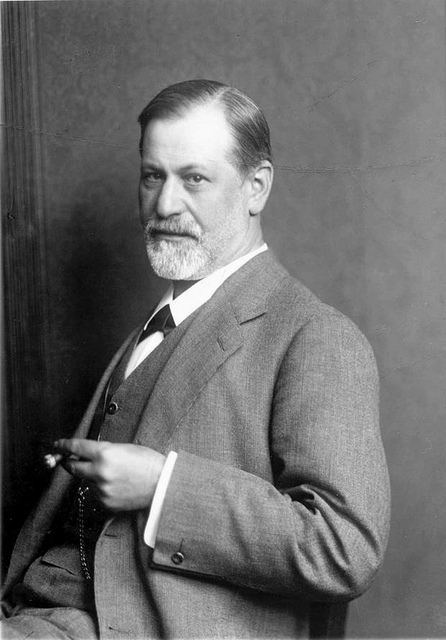Guest Columns
Malaise of modern psychology

This essay, “The Malaise of Modern Psychology,” first appeared in The Journal of Psychology in March 1992.
From Hobbes to Freud
When Hobbes wrote, “The thoughts are to the desires as scouts and spies to range abroad and find the way to the things desired,” he was laying the foundation for modern psychology. Hobbes relegates thought or reason to the role of a mere instrument of man’s desires. Instead of the primacy of the intellect, we have the primacy of the emotions (which Spinoza regarded as “modifications” of desire). Since the emotions do not grasp universals – the existence of which Hobbes denies – the consequence is the ubiquitous doctrine of moral relativism. No one has stated this doctrine more clearly than Hobbes himself. Allow me to repeat the relevant passage in his Leviathan:
But whatever is the object of any man’s appetite or desire, that is it which he for his part calleth good; and the object of his hate or aversion, evil; and of his contempt, vile and inconsiderable. For these words of good, evil, and contemptible, are ever used with relation to the person that useth them: there being nothing simply and absolutely so; nor any common rule of good and evil, to be taken from the nature of the objects themselves; but from the person of the man, where there is no commonwealth.
To appreciate Hobbes’ influence on contemporary psychology, ponder this recent deliverance of a clinical psychologist: “Whether behavior is referred to as [normal or] abnormal is based upon a social designation rather than qualities which inhere in the behavior itself.”[1] Hobbes’ moral relativism has spawned a relativistic conception of “normal” and “abnormal” behavior. Thus, what is deemed “normal” in one country may be deemed “abnormal” in another.
Modern psychology subordinates reason to passion
By virtue of its subordination of reason to the passions, modern psychology denies not only the possibility of objective knowledge of good and evil, but also the distinction between mind and nature. The mind, no longer autonomous, becomes a natural object, such that intellectual activity will henceforth be understood in terms of material causes.
This naturalistic psychology was reinforced by Karl Marx: “The phantoms formed in the brain are … sublimates of [man’s] material life-process, which is empirically verifiable and bound to material premises. Morality, religion, metaphysics, all the rest of ideology and their corresponding forms of consciousness, thus no longer retain the semblance of independence.”[2]
Marx was curiously delighted by the publication of Darwin’s doctrine of evolution, that is, of man’s descent from lower forms. This doctrine makes that which supposedly occurs earlier in phylogeny (such as the instincts) determinative of what occurs later (such as thought).
Freud easily accepts evolution
Freud accepted “the evolution of animals into men” with alacrity.[3] Indeed, like Hobbes, he regarded the “psychical apparatus” of man and the higher animals as equivalent.[4] Hence the Freudian id. The id is the total ensemble of instincts or passions, the most important of which is the libido. The id, writes Freud, “expresses the true purpose of the individual organism’s life,” which “is directed exclusively to obtaining pleasure.”[5]
It is from the id – from the impact of external stimuli on the body – that the ego is formed. The ego is the thinking servant of the id. It functions as the organism’s “reality principle” – Hobbes’ “scouts” and “spies” – which may warn the id to limit or postpone the gratification of its pleasure-seeking principle. Encouraged by evolution, Freud went so far as to say that “The differentiation between the ego and the id must be attributed not only to primitive man but even to much simpler forms of life.”[6]
Such has been the influence of evolution on psychology that even cognitive psychologists contend that “cognitive functions … evolved with phylogeny.”[7] They not only claim (with Hobbes and Freud) that “Emotional processes have to be primal in human behavior,” but they insist on “the primacy of biological events in the emotion-cognitive nexus.”[8] Here they commit the classical logical fallacy of post hoc propter hoc (“after this, because of this”).
Morality becomes merely personal
In any event, to say or imply that moral values, or ideas concerning how man should live, are determined by sub-rational or biological drives or instincts, is to say, in effect, that what we believe to be “right” or “wrong,” “good” or “bad,” “just” or “unjust,” depends on our personal likes and dislikes. Hence there are no qualitative differences between the motivations of the vulgar and of the refined: All men are equally animated by egoism. From this moral egalitarianism it follows that all the emotions, love included, are self-regarding. The only natural good is the private good.
Modern psychology therefore liberates the emotions from the restraints of reason. Moreover, the relativism or subjectivism of modern psychology applies not only to moral values but also to aesthetics values, to ideas of the beautiful. Formerly, beauty was linked to goodness and truth. The True, the Good, and the Beautiful, though distinct, were thought to be inseparable. (Indeed, we still speak colloquially of a “beautiful idea” or of a “beautiful deed.”) This is no longer so in modern halls of learning. Beauty has been separated from truth and goodness (hence the flood of soul-destroying pornography and that which follows, the crass vulgarity of speech that infects all ranks of society). The separation of beauty from truth and goodness has emancipated imagination, further liberating the emotions. The casualty is reason, indeed, sanity.
Behavioral determinism
The derogation of reason will be found in the psychoanalytical, behavioral, and biomedical models of mental disorders. Each model involves a mechanistic or deterministic conception of human behavior. The psychoanalytical model exaggerates the influence of unconscious forces (the id, libido, and Oedipus complex) as well as the permanency of childhood traumatic experiences. The behavioral model exaggerates the influence of external stimuli or conditioning. The biomedical model exaggerates the influence on mentality of neural and genetic mechanisms.
Critics of Freud
Each model has its critics, more or less polemical and more or less empirical. No less than Carl Jung declared: “What Freud has to say about sexuality, infantile pleasure, and their conflict with the ‘reality principle,’ as well as what he says about incest and the like, can be taken as the truest expression of his own psychic make-up.” “Freud’s teaching,” he adds, “generalizes from facts that are relevant only to neurotic states of mind …” His “is not a psychology of the healthy mind.”[9]
D. G. Garan contends that Freudian psychology is a pre-scientific “personification” of mysterious psychic forces.[10] (To those mentioned above, one may add Eros, Thanatos, the “censor,” penis envy, and the castration complex.) Some of these unseen forces are described as autonomous. They operate in the unconscious where they are (mysteriously) endowed by Freud with the capacity to reason, react, evaluate, plot, and carry out complex mental acts affecting “normal” and “abnormal” behavior.[11]
S. J. Rachman is more specific. His studies of people subjected to life-threatening events such as aerial bombardment, as well as current research on various forms of panic such as agoraphobia, refute not only Freud’s contention that phobias originate in libido repression,[12] but also the behavioral view that phobias result from traumatic conditioning. “I can think of no psychological theory … that would have predicted the prompt return of the Hiroshima survivors or their extraordinary psychological resistance.” Moreover, in a study of 218 military bomb disposal operators, Rachman reveals that “there was no relationship between psychometric or psychiatric results and the performances of dangerous duties, and the few cases of psychological disturbance were not predicted by psychological tests or by psychiatric interview.” He concludes that contemporary psychological theories regarding phobias “are designed for creatures more timorous than human beings.”[13]
Critics of biomedical behavioral determinism
Consider, finally, the biomedical model of mental disorders, specifically its emphasis on drug therapy. While various drugs can be therapeutic per se and also facilitate psychotherapy, so, to a lesser extent, can placebos. It should be noted, moreover, that neuroleptic drugs can be addictive and produce irreversible side effects. One study “estimates that around half of the world’s 150 million recipients of major tranquilizers suffer from some degree of tardive dyskinesia.”[14]
Although biochemical drugs produced by the organism itself (endorphins, for example) are thought to be non-addictive and promising, man is far too complicated for such simplistic panaceas. Mention should also be made, therefore, of electroconvulsive therapy. Whatever its curative impact on simple physiological depressions, shock treatment can result in permanent damage to a patient’s neurological system and memory.[15]
A clinical discipline in disarray
It will be evident from the preceding discussion that modern psychology is in a state of disarray. One psychologist says of the members of his profession that many are bewildered by the fact that “behavior therapy, psychoanalysis, family therapy, a witch doctor, friends, and sometimes no intervention at all bring about successful therapeutic outcomes.”[16] Another psychologist writes: “One cannot help but wonder how much in this field is theory and technique, how muech is personal charisma, art, religious conviction, or science.” Still another contends that “all psychotherapies are theoretically misguided, that … there are common mechanisms by which all therapies work, but their exact nature still remains unclear.”[17]
Dr. S. Kellam of the National Institute of Mental Health (NIMH) offers a more radical assessment: “[The] major effort in psychiatry today is to reduce the degree to which the physician and mental hospitals stand in the way of patient’s own capacity to get better.”[18] Consistent therewith, it has been reported that “More than half the patients derive no benefit from psychoanalysis and for 60 percent of these patients it is harmful. At the same time … two thirds of all neurotics recover without any treatment whatever ”[19] Garan concludes that “Mental patients … recover better without psychotherapies, by living through their ‘disease’ as a pressure back to normality.”[20] One suspects that psychiatry may even be hazardous to your health!
Lots of sick people turning anywhere and everywhere
A recent NIMH study indicates that one out of every five adult Americans suffers from some mental disorder (Garan, 1987, p. 140). (This compares with an estimated rate one-in-ten in the 1960s and one-in-twenty in the 1940s.) The study also shows that of the thirty million adults now suffering from mental disorders, only one-fifth seek professional help, and mostly from general physicians, not psychiatrists.[21]
No doubt the misery of so many people is to be attributed to a multitude of causes. But surely one of those causes, and no minor one, is the moral relativism generated by modern psychology. What needs to be emphasized, however, is this largely unknown fact: The Hobbesian subordination of thought to the passions has led to the emancipation of imagination – and no psychology is more the product of imagination than that of Sigmund Freud, the most influential psychologist of the twentieth century.
Contradictory theories
The imagination of men, couched in pseudo-scientific jargon, has spawned a welter of contradictory psychologies. Jung candidly admitted in 1933 that “The very number of present-day ‘psychologies’ amounts to a confession of perplexity.”[22] Some 200 different psychotherapies are now reported in the democratic world, of which more than 60 are said to be flourishing.[23] Such pluralism is neither conducive to sanity nor consistent with science.
The multiplicity of contradictory psychotherapies is symptomatic of the widespread confusion among psychologists and other social scientists regarding the nature of man on the one hand, and what constitutes a healthy form of political society on the other. The first thing that needs to be recognized is that the human mind is not a natural object, that the attempt to establish a naturalistic psychology was not only bound to fail but to have pernicious consequences. A fallacious conception of human nature cannot but have detrimental effects on mental health and public happiness.
Unlike mathematical physics, psychology is not an exact science. The question of free will aside, psychology falls far short of being an exact science because neither thought nor emotion has quantifiable units.[24] Suppose, however, that the emotions, conceived in terms of energy, could be quantified. Given a reductionist and mechanistic psychology, what would be the cognitive significance, say, of an erg of specific emotional energy?
A reductionist and mechanistic psychology is a self-effacing contradiction in terms as well as a purblind denial of human creativity. Such a psychology entails insuperable epistemological problems, as the following will show.
The paradox of behavioral determinism
If abnormal behavior is reducible to biochemical causes, then normal behavior must also be reducible to biochemical causes. But to reduce behavior to biochemistry is epistemologically absurd, for it would then follow that this theory of behavior is itself reducible to biochemical causes. Similarly, if behavior is Skinnerian, a mere resultant of social conditioning, or if behavior is Freudian, the consequence of a cauldron of instincts modulated by childhood experiences preserved in the unconscious, what is the scientific status of the intellectual products of these psychologists? By exempting their own psychophysiological processes from their conclusions regarding the determinants of human behavior, they call to mind the sign at the sideshow in Swift: “THE LARGEST ELEPHANT IN THE WORLD EXCEPT HIMSELF TO BE SEEN HERE.” Such is the epistemological consequence of denying the primacy and potential autonomy of the intellect vis-à-vis the passions.
The fact that the prevailing schools of modern psychology purvey a deterministic conception of human behavior is paradoxical, for they do so in an era that boasts of freedom. This democratic era, however, is also given to moral laxity and to a spiraling rate of mental disorders. Here another look at Freud may be instructive.
Mental disorder from lack of restraint
Although Freud attributed all that is most precious in human civilization to repression of the instincts, he nonetheless held that psychopathological symptoms are “an indication of and substitute for an unachieved instinctual gratification.”[25] In other words, Freudian (and much of post-Freudian) psychology is based on the assumption that the causes of mental disorders reside in repression of the natural desire for pleasure. Garan argues to the contrary that neuroses and psychoses usually result from over-enjoyment, whether by the use of physical or of psychological stimulation. The distressed person reacts to, and seeks to avoid, the negative aftereffects of excessive pleasure by more intense stimulation, thereby initiating a vicious cycle having devastating consequences. For Garan, the claim that repression of the instincts is the cause of disorders – Freud called it “the pillar on which the edifice of psychoanalysis rests” – is a monumental error and dangerous fallacy.[26]
French psychiatrist and professor of medicine Henri Baruk goes further. He offers clinical evidence that mental illness, nowadays, is caused not by repression of the instincts so much as by the total absence of moral restraint. Baruk, who credits Hebraic biology for his findings, has published papers indicating that diminishing the ability of people to distinguish between good and evil produces subtle changes in the chemistry and circulation of their blood and, remarkably, various neuroses and psychoses.[27]
Did Freud even partly recant?
Although Freud, at the end of his psychological ruminations, is said to have discarded the notion of repression and replaced it with “nongratification,” this did nothing to mitigate the hedonistic tendency of his doctrine. Release of the emotions by removing restraints on sensual pleasures has very much become the goal of therapy as well as the norm of democracy. The postulation of the primacy of the passions has thus led to their liberation. This liberation undermines all authority: It ruins the family and therefore society. Man, it seems, is being dispossessed of all moral responsibility. The aggressive emotions are gaining ascendancy. The end result is manifest: escalating crime and violence.[28]
Summing up
Without denying its accomplishments in perception and learning theory, modern psychology has rightly been called the “psychology without a soul.” The ordered or hierarchical soul has been replaced by the “self,” by an ensemble of desires. The gratification of desire – of any desire – is fostered by moral relativism. Relativism cannot say No to any desire or to incessant pleasure-seeking. Excessive enjoyment of any pleasure leads to a spiraling pleasure-pain chain reaction ending in mental as well as physiological disorders.
As noted above, the number of people afflicted by such disorders in democratic societies is of epidemic proportions. Because such societies are consumer oriented and preoccupied with effort-eliminating technology, they attempt to maximize pleasure by multiplying and stimulating desires and by discarding internal inhibitions and external restrictions. The results are everywhere evident: stress, alienation, loss of concentration, fatigue, mental impoverishment, disease, drug addiction, and, of course, pain. As Garan has put it: “Never have people enjoyed more of everything they have always wanted … But never have men suffered more from anxiety, which fifty years ago was not even known as a problem.”[29]
Physical and mental health, like existence in general, requires night as well as day, the negative as well as the positive, restraint as well as freedom, privation as well as satisfaction. Evident here is the Torah principle – see Ecclesiastes – that everything in creation requires its opposite. To ignore this principle is to court disaster.
Desperately needed is a new psychology, a new understanding of human nature, especially one that reveals the true relationship between the intellect and the emotions. The principles of such a psychology are at hand. Needed only is a more explicit, detailed, and systematic analysis, one rooted in the Torah. Here we offer a thought-experiment to illustrate the primacy of the intellect.
A Thought-Experiment
The thought-experiment I have in mind is embarrassingly simple, embarrassing because anyone can perform this experiment and, in the process, turn much of modern psychology on its head. In fact, after making the experiment, the reader may conclude that I have either grossly over-simplified modern psychology by saying it is based on the primacy of the passions, or that modern psychology, far from revealing what is distinctively human, is little more than an explanation of animal-like behavior. But let us make the experiment after a word from one of the architects of modern psychology, Spinoza.
Following a mode of thought inaugurated by Machiavelli and elaborated by Hobbes, Spinoza held that “desire is the actual essence of man,” and that emotions are modifications of that essence. From this it would follow that “an emotion cannot be destroyed nor controlled except by a contrary and stronger emotion.”[30] Spinoza does not explain how one emotion can be stronger than another. Clearly, the emotions have different degrees of intensity. Whereas one person’s love of family or of country may overcome his fear of violent death, another’s may not. On the other hand, a person may risk his life rescuing a complete stranger. Spinoza sheds no light on these questions.
Obviously no emotion or desire can impede itself. Desires are not self-qualifying. A person’s desire for “X” may well be constrained and overcome by fear that gratifying the desire may result in ruinous consequences.[31] Such consequences, however, must be anticipated or cognized to arouse that fear. To conclude, therefore, that an emotion can be controlled only by a contrary and stronger emotion will not stand the test of critical analysis. The following thought-experiment will bear this out.
An innocent target
Probably all of us have regretted a moment of anger, especially when, after having given vent to that emotion, we discover that the offending person, the victim of our wrath, was innocent of any wrongdoing. As soon as we discover the truth of the matter, we cease to be angry with the person in question and even apologize. This common experience clearly demonstrates that our initial anger was activated by a misperception or hasty judgment on our part, and that as soon as we learn of our mistake, our reason or intellect not only turned off the emotion of anger, but turned on the emotion of remorse.[32]
Here it may be objected that love alone can transform anger to remorse. True, but the process is not simply an emotional one. Often ignored is the fact that every human emotion involves an idea or concept, else one emotion could not be distinguished from another. Moreover, every emotion has gradations of intensity depending, in part, on the object that may arouse it. We love, say, our friends, our children, our parents, our teachers, our country, God. But the order and intensity of these loves varies with the ideas associated with these subjects. Such was Abraham’s love of God that he was prepared to sacrifice his beloved son. Such was Isaac’s love of God that he was willing to be sacrificed. In each case, however, love was modulated by the patriarch’s understanding of his world-historical purpose or relationship to his Creator.
Primacy of the intellect
Furthermore, love itself may be turned off by an act of the intellect, by the recognition that someone we love is unworthy of our love. Similarly, hatred, followed by reflection and judgment, may be transformed into disdain or mere indifference. On the other hand, as a result of new knowledge or insight, hatred may give way to love, just as love may give way to hatred. Even the fear of violent death may be overcome by meditation and understanding. All of which suggests that the human soul is too complicated to be adequately explained by a mode of material causality, as if it were merely a stimulus-response mechanism.[33]
But to further reveal the primacy of the intellect vis-à-vis the emotions, let us return to the feeling of remorse resulting from an error in judgment. This remorse signifies a negative judgment against ourselves. We feel guilty for having committed an injustice or for having fallen short of self-expectation. Even if we feared retribution, the fear would be rational, meaning, it would have been caused by the cognitive awareness that our anger had no rational justification.
We are often our harshest critics
Probing deeper, quite apart from the harm caused to the innocent victim of our anger, the mere realization that we had erred in our judgment may mortify us. This suggests the operation, within us, of intellectual or mortal probity to which no other mortal is privy and which therefore is not concerned about public opinion. James held a similar view despite his theory of the emotions:
We are frequently more ashamed of our blunders afterwards than we were at the moment of making them; and in general our whole higher prudential and moral life is based on the fact that material sensations actually present may have a weaker influence on our action than ideas of remoter facts.[34]
To admit, however, that ideas can make us feel ashamed is to admit that the intellect can trigger emotions and even physiological changes. Incidentally, this rather obvious fact [which refutes David Hume], underlies the use of lie-detectors or polygraphs.[35]
And so, even though lying is commonplace, the desire or concern for truth is more basic to human nature (else science and society and even modern psychology would be impossible). This is but to suggest that we possess an intellectual-moral faculty that hates any error in our mind concerning reality, that deplores self-delusion even apart from its practical consequences. “How could I have been so stupid?” we sometimes say to ourselves, even when the stupidity is known to no other person and results in no tangible loss.
God reminds us
Thus Plato in the Republic: “… to be ignorant in the soul concerning reality, to hold and possess falsehood there, is the last thing any man would desire. Men hate falsehood in such a case above all” (382a). This capacity for self-criticism not only distinguishes the human from the sub-human, as well as the urbane from the vulgar, but it reveals the intrinsic supremacy of the intellect over the emotions.
Finally, if we should believe in a God Who knows our every thought and deed, and Who judges us in the scales of Graciousness and Justice measured by Truth, our capacity for self-criticism cannot but be more refined and elevated. And if we have learned very much about the Torah of this God, Who is slow to anger, we ourselves would become more deliberate in judgment and be far less likely to actuate that hostile emotion. Indeed, the fear of displeasing this God would make us all the wiser, especially if that emotion is associated with love, a love resulting, like Abraham’s, from profound knowledge.
Conclusion
Although modern psychology has degraded man, it has nonetheless served a constructive world-historical purpose by facilitating the conquest of nature. We ordinarily thank modern science, beginning with Newtonian physics, for the conquest of nature, but this is superficial. The conquest of nature required the liberation of man’s acquisitive instincts, and this was facilitated by modern psychology. The liberation of man’s acquisitive instincts, however, required a political vehicle, namely, democracy. Democracy, with its separation of church and state, of morality and public law, terminated the rule of a religious landed aristocracy and opened the door to capitalism: unlimited greed and the preoccupation with material well-being. In other words, by reducing reason to an instrument of physical desires, modern psychology closed the mind to the nonphysical world and thereby hastened the conquest of the material world.
This is why Israel’s ruling elites believe they can buy peace from Islam, a world oblivious of Hobbes. How ironic. Hobbes based his political philosophy on the “fear of violent death,” which he deemed the summum malum, the greatest evil. This fear, he contends, induces mankind to seek “peace.” That may well be the underlying and dominant motive of countless seekers of peace in Israel. It stands in stark contrast to Israel’s enemies, who [who love death and] exalt suicide terrorist bombers motivated by the desire for the pleasures of paradise!
Endnotes
[1] Alan E. Kazdin, “The Modification of ‘Schizophrenic’ Behavior,” in Peter A. Magaro (ed.), The Construction of Madness, p. 153. One wonders whether Kazdin has ever visited an insane asylum?
[7] See Carroll E. Izard et al. (eds.), Emotions, Cognition, and Behavior, pp. 69, 80. Although the editors admit that cognition is sufficient to activate the emotions (p. 1), their dogmatic acceptance of evolution compels them to insist on the primacy of the emotions as opposed to the intellect.
On evolution, see the critical works cited in Nathan Aviezer, In the Beginning: Science and Torah, pp. 54-59. Alfred North Whitehead, The Function of Reason, p. 15, rejected the modern inversion of mentality long before the accumulation of paleontological evidence contradicting interphylum evolution. Whitehead argued that even if one were to accept the evolutionary hypothesis, neither logic nor observation requires us to affirm the primacy of the emotions: what occurs later in phylogeny might well dominate that which came earlier. Nevertheless, instead of the primacy and potential autonomy of reason, modern psychology has posited the primacy of an autonomous unconscious. A contrary position is presented by Yakov Rofe, Repression and Fear, pp. 218, 246, who cites current research indicating that the behavior even of paranoid schizophrenics can be explained as reactions to consciously perceived entities, and that therapy does not require the postulation of any autonomous unconscious agency.
[8] Izard, pp. 17, 24. Albert Ellis, Reason and Emotion in Psychotherapy, a cognitive psychologist, seems to affirm the primacy of reason vis-a-vis the emotions. The impression is misleading. Ellis happens to be a moral relativist. This being so, his “reason” is incapable of apprehending objective or suprapersonal standards of good and evil or of how one should live. Reason must then be an instrument of one’s personal desires or aversions. We are back to Hobbes.
Unlike Hobbes, however, Ellis regards negative emotions such as hate (and anger) as irrational. This follows logically from his moral relativism. Even in this relativistic age people tend to regard the object of their hatred as evil. But to hate anything as evil is irrational, for nothing is truly evil in the world of moral relativism. (But if hatred is irrational, surely the same must be said of love.) Rational-emotive therapy would then seem to be limited to dissolving those (erroneous) moral judgments of a patient which he deems objectively valid, but which judgments arouse in him disturbing or “maladaptive” emotions. Although such therapy may sometimes be salutary, it leaves reason as a mere instrument of one’s desires.
Contrast D. G. Garan, The Paradox of Pleasure and Relativity, who provides a devastating critique of the hedonistic foundation of all schools of modern psychology. And yet, Garan, too, reduces reason to an instrument of the emotions (p. 30) and succumbs to moral relativism (p. 265). Only his good sense saves him from sheer folly. He not only reaffirms the partial autonomy of reason (pp. 132, 136), but repeatedly emphasizes that mental health necessitates moral restrictions
[9] C. G. Jung, Modern Man in Search of a Soul, pp. 116-117; but contrast pp. 41-45. See Bertram P. Karon, “The Psychoanalysis of Schizophrenia,” in Magaro, p. 206, who concludes that, contrary to Jung and Freud, “there is no collective unconscious, that symbolism based on word origins are not necessarily valid, that there is no prenatal memory, that there is no death instinct … and that libido is at most a useful metaphor.”
[11] D. G. Garan, The Key to the Sciences of Man, p. 123. See also L. Willerman & D. B. Cohen, Psychopathology, p. 20, who offer this criticism of the Freudian and psychoanalytical model: “First, many of the assumptions [of this model] are either scientifically untestable or, when tested, found to be unsupportable. For example, the role of early childhood experience in indelibly shaping adult personality is inconsistent with the research evidence suggesting a less powerful role for these early experiences. Second, scientifically more defensible explanations involving biology, conditioning, and cognition often seem to fit the facts about abnormality better.” Stephen Jay Gould, The Hedgehog, The Fox, and the Magister’s Pox, p. 134 is less kind: “… in our last century, Sigmund Freud rose to preeminence as a paramount social force through his unparalleled literary gifts, and surely not for his cockamamie and unsupported theory of the human psyche.”
[14] David Pilgrim, “Competing Histories of Madness,” in Richard P. Benthall (ed.), Reconstructing Schizophrenia, p. 228. See also P. A. Berger & K. L. Davis, “Pharmacological Studies of Tardive Dyskinesia: Implications for Future Research,” in Charles F. Baxter & Theodore Melnechuk (eds.), Perspectives in Schizophrenia Research, p. 333.
[16] Ibid., pp. 255-256. Theoretical physicist Richard Feynman, Six Easy Pieces (New York: Penguin Books, 1998), p. 63, writes: “… psychoanalysis is not a science: it is at best a medical process, and perhaps even much like witch-doctoring.”
[24] Although Ignazio Matte-Blanco pursued at length the hypothesis that the emotions may be measurable, the idea is not even alluded to in his more recent work on thinking and feeling. See his The Unconscious as Infinite Sets, and Thinking, Feeling, and Being.
[27] Henri Baruk, Tsedek, pp. 2-5, 24, 123-127, 133-134. See Lev. 17:11, 14; Deut. 12;23; Isa. 5:20-24, 44:24-25.
[31] But then it is not merely the emotion of fear but the anticipation of those consequences that is necessary to overcome the desire for “X.” Fear may be necessary but certainly not sufficient.
[32] See S. J. Rackman, Fear and Courage, 2d ed., pp. 28, 38, 43. Rackman’s study reveals that “fearful cognitions” or “catastrophic misinterpretations of bodily sensations can” induce panic, indeed, that panic can be induced by “meditational states” as well as by hyperventilation (pp. 131, 135). This is not to suggest that panic can be prevented merely by acts of the intellect. But as Aristotle understood, true courage, like all the moral virtues, requires proper habituation and the use of reason. What Aristotle terms “habituation” is equivalent to the conditioning associated with behavioral psychology. Aristotelian conditioning, however, is intended to maximize the autonomy of reason in human life.
[33] Rackman (p. 55) notes that ideology significantly increased the fighting capacity and resistance to fear among those who volunteered on the side of the Republicans during the Spanish Civil War. This only confirms the well-attested phenomenon of religious martyrdom, which dramatically illustrates the power of ideas or rather, of the intellect, over the fear of violent death. Thus, referring to the “state of mind of religious men,” William James admits that “Fear is not held in abeyance as it is by mere morality; it is positively expunged and washed away.” See his Varieties of Religious Experience (New York: Modern Library, n.d.), p. 47. (Original work published 1902.)
It should also be noted in passing, however, that the primacy of the intellect is manifested even in anxiety, an emotional disorder whose prevalence in this century coincides with the ascendancy of skepticism and moral relativism in the democratic world.
[34] James, Varieties of Religious Experience, p. 53. Here James rejects reductionism. For a critique of reductionism in biology, see Gould, pp. 221-260; See also Richard Feynman & Steven Weinberg, Elementary Particle and the Laws of Physics, p. 66, where Weinberg says, “It is true, of course, that a naïve reductionism can have terrible effects, no where more so than in the social sciences.”
[35] See C. F. Levinthal, Introduction to Physiological Psychology. [Hume held that “reason is perfectly inert, and can never either prevent or produce any action or affection.” See his A Treatise of Human Nature (Oxford: Clarendon Press, 1955), 414-415, 458.]
-

 Accountability3 days ago
Accountability3 days agoWaste of the Day: Principal Bought Lobster with School Funds
-

 Executive1 day ago
Executive1 day agoHow Relaxed COVID-Era Rules Fueled Minnesota’s Biggest Scam
-

 Civilization11 hours ago
Civilization11 hours agoWhy Europe Shouldn’t Be Upset at Trump’s Venezuelan Actions
-

 Constitution2 days ago
Constitution2 days agoTrump, Canada, and the Constitutional Problem Beneath the Bridge
-

 Civilization1 day ago
Civilization1 day agoThe End of Purple States and Competitive Districts
-

 Christianity Today11 hours ago
Christianity Today11 hours agoSurprising Revival: Gen Z Men & Highly Educated Lead Return to Religion
-

 Executive24 hours ago
Executive24 hours agoWaste of the Day: Can You Hear Me Now?
-

 Executive4 days ago
Executive4 days agoTwo New Books Bash Covid Failures













